Inside the wild and dangerous world of pro sports mascots
Rick Ford knew that Dandy was doomed from the outset.
The short-lived Yankees mascot — a 7-foot-tall, pinstriped, mustachioed bird in a team cap — only lasted from 1979-’81 before being axed.
It debuted in July 1979, but was benched weeks later when catcher Thurman Munson, whose facial hair looked an awful lot like Dandy’s, was killed in a plane crash. Team owner George Steinbrenner had approved the character, but was never a fan: Dandy ended up banished to the upper deck of Yankee Stadium.
Ford, a young actor at the time, had the indignity of playing Dandy for a season.
“Nobody had any idea what I was or what I was doing there,” he told The Post in 2019. “[The audience at ] just looked at me like, ‘What the hell is this thing?’”
Ford also recalled an appearance at Madison Square Garden in 1978 when, blinded by the spotlights, he jumped off the stage. “The crowd just started ripping me to pieces as I lay on the floor. I thought I wouldn’t get out alive,” he told The Post this week.
“I had all this fur in my mouth — I couldn’t breathe. All I could hear was people shouting ‘Unzip his head! Unzip his head!’”
In the single season that Ford spent as Dandy, he received just $40 per game and $105 for personal appearances.
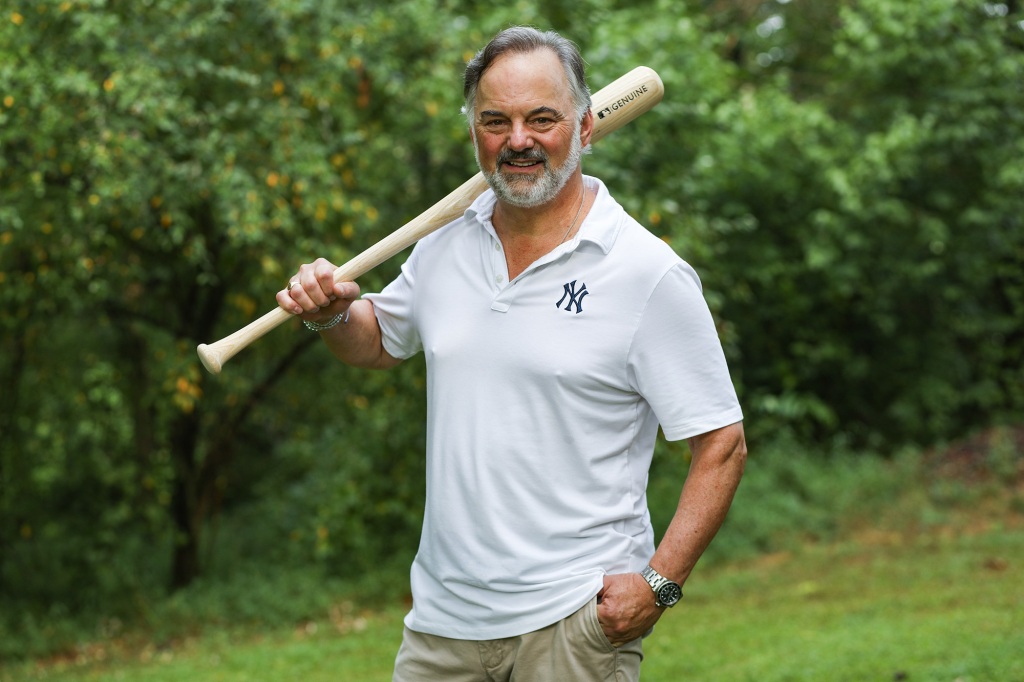
But, he alleged, “They never paid me. I was always chasing money so I kind of kidnapped the costume and told them I’d return it when they paid me.”
It’s a very different story for mascots today.
A recent report from Sport Business Journal revealed the astonishing salaries of some of these team characters. At the top for the NBA is Rocky the Mountain Lion of the Denver Nuggets, who reportedly makes $625,000 a year, followed closely by Harry the Hawk of the Atlanta Hawks on a salary of $600,000. The Chicago Bulls’ Benny the Bull pulls down a cool $400,000 annually.
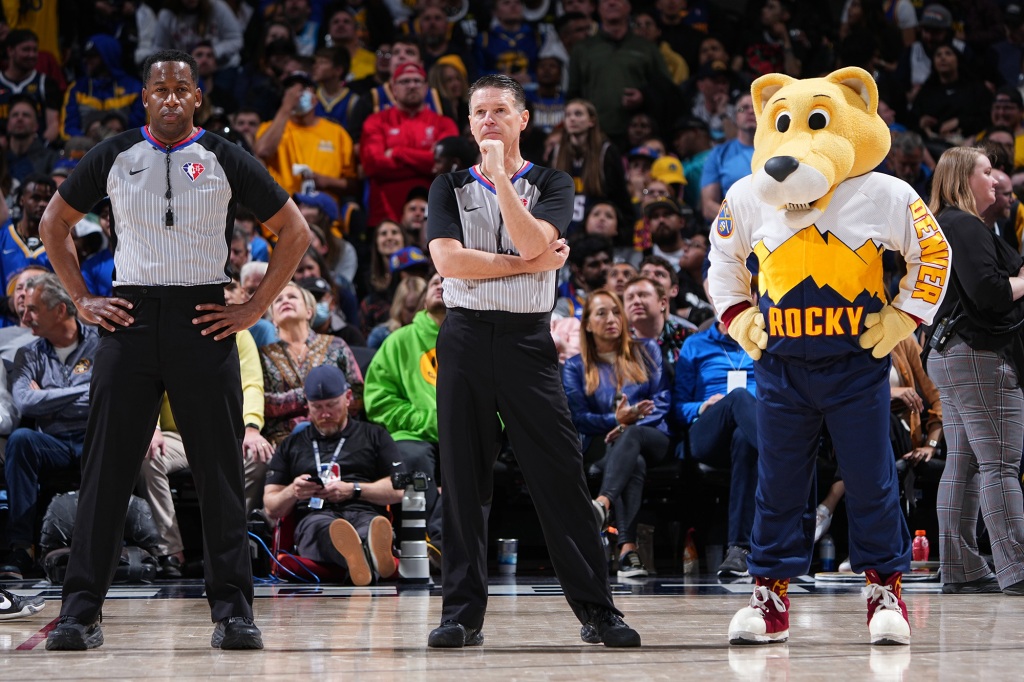
It’s serious money for what, on the face of it, seems like a silly job.
But Dave Raymond, the godfather of the mascot industry, said it’s hard-earned.
“There is really good money to be made, sure, but only for the people that are the most talented,” he told The Post. “Remember, the only reason why they’re making that money is that they’re [driving] two or three times that amount for the organization. ‘
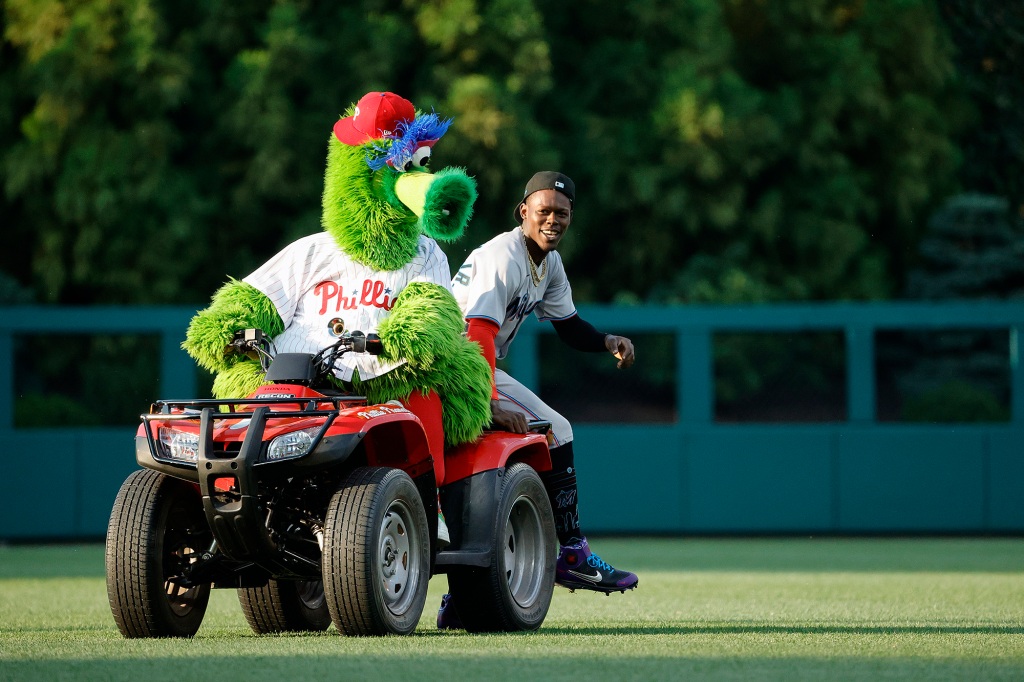
“So as long as the character brand has been taken care of properly and built properly, and the organization cares about that character brand, and then you have a great and talented performer, then it’s worth paying them that and making sure that they’re happy.”
In 1978, Raymond was hired to be the new Philadelphia Phillies mascot — a green furball by the name of Phillie Phanatic that he played for 16 years. He’s gone on to help design characters for teams —including the Flyers’ polarizing Gritty — as well as found the Mascot Hall of Fame and even run a boot camp for mascot actors in Whiting, Indiana.
He recalled once narrowly averting immolation during a game. As the Phanatic, Raymond was driving a three-wheeler car around the stands; the gas cap was loose and, as he pulled a wheelie, the fuel leaked out and covered the lower half of the costume — just as some fans nearby were lighting cigarettes.
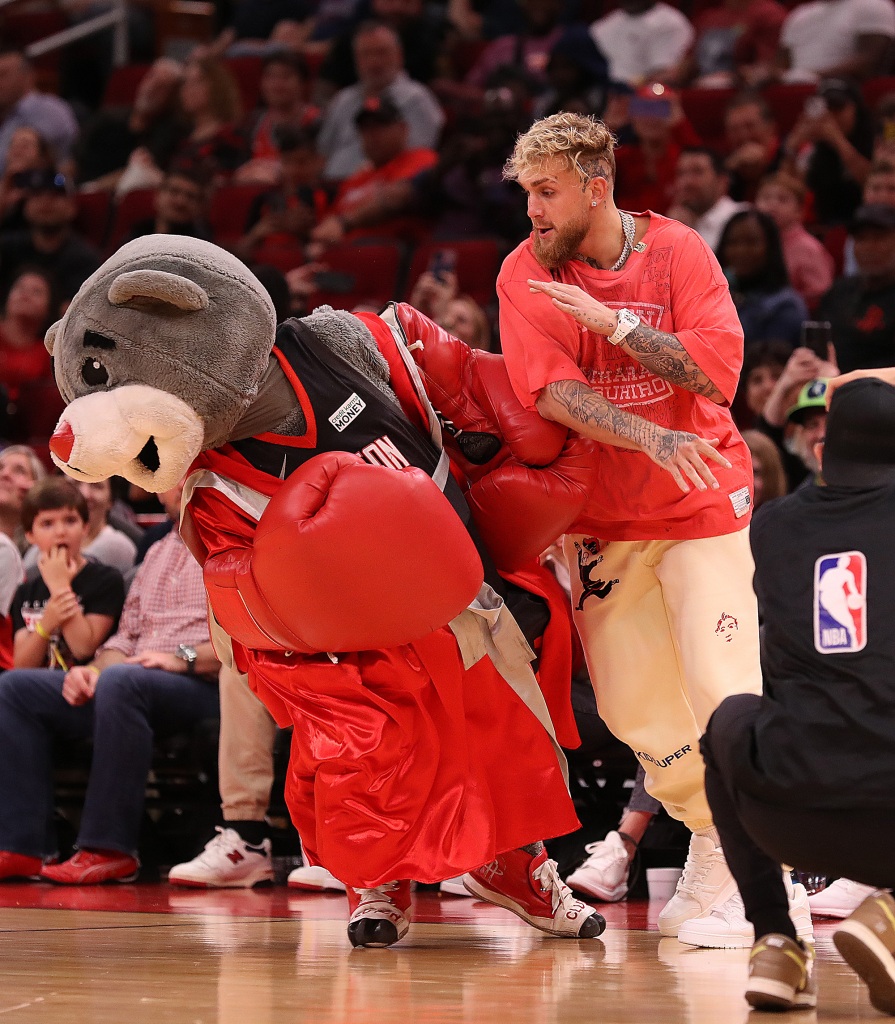
“All I could imagine was that the Phanatic was going to go up in flames,” he said.
Indeed, it can be a dangerous job. Clutch, the Houston Rockets mascot, was dancing around the court in April when boxer and social media star Jake Paul laid him out with a single punch. “He was asking for it,” Paul said. Clutch, with the person who plays him still inside the costume, had to be carried off the court.
Bernie Brewer, meanwhile, is known for throwing himself down a long and winding slide whenever the Milwaukee Brewers score a home run. In August, TV reporter David Vassegh was invited to try it before a game and ended up smashing into a barrier, cracking six ribs and fracturing his wrist.
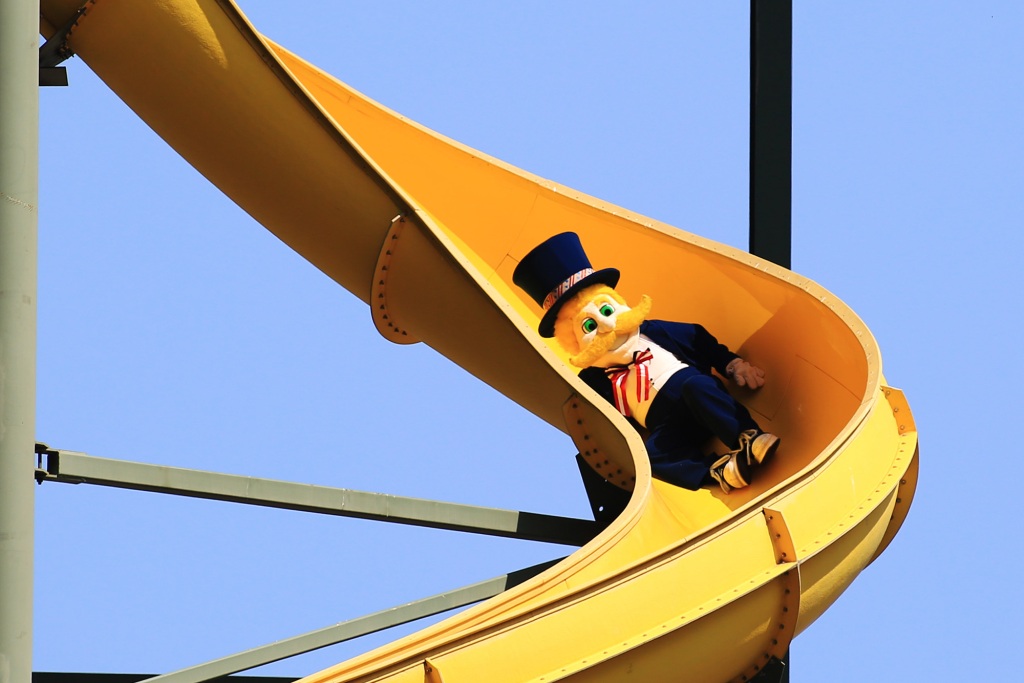
The Post asked for a comment from Bernie but, his spokesperson explained, “Since Bernie doesn’t speak, it wouldn’t really make sense to have a quote from him in the piece.”
(Indeed, the actors who play most mascots are given the kind of anonymity usually afforded to those on a witness protection program.)
And God forbid a mascot go off-script. In 2003, Harvey the Hound of the NHL’s Calgary Flames decided to hang out behind the opposing team’s bench, occupied by the Edmonton Oilers — who were down 4-0. Oilers coach Craig McTavish ripped off Harvey’s tongue and threw it into the crowd.
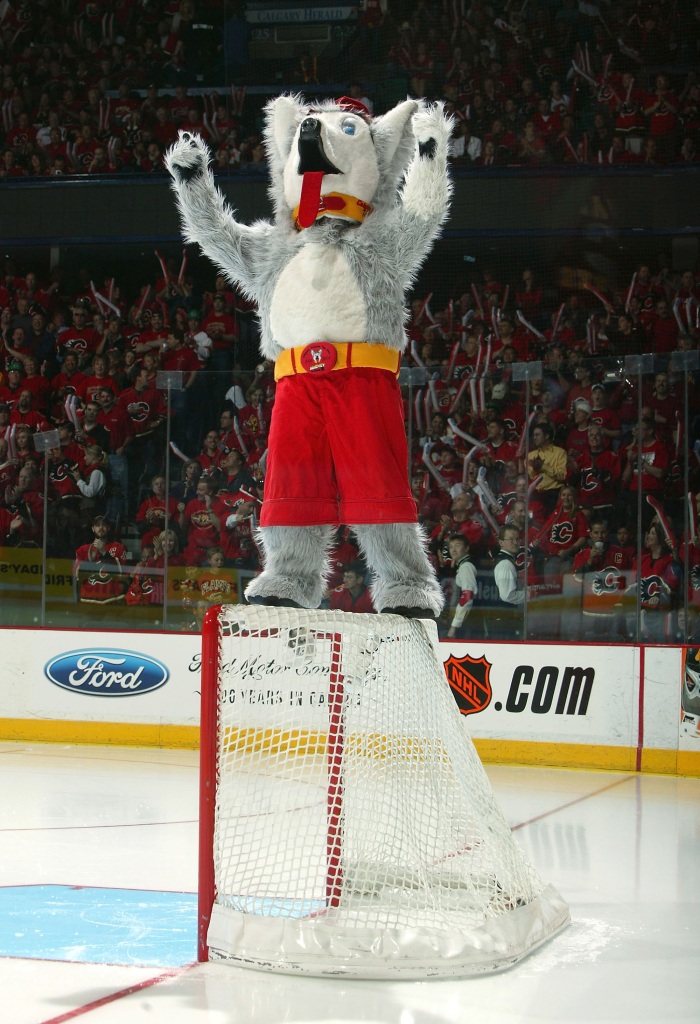
Then there’s the physically taxing nature of wearing a 40-pound costume in which temperatures can soar up to 20 degrees higher than outside.
So the fact that Tom Burgoyne is now 56 and still playing the Phillie Phanatic — a role he took over from Raymond in 1988 — is incredible.
He applied for the job via a mysterious P.O. Box advertisement in the Philadelpha Inquirer, unaware just what he was getting himself into.
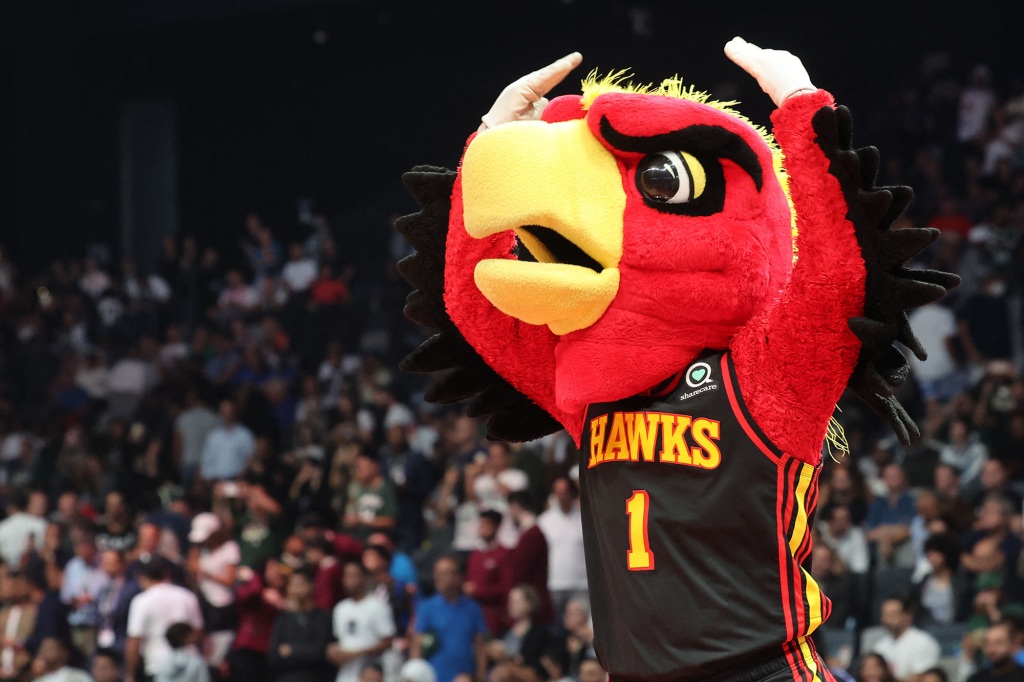
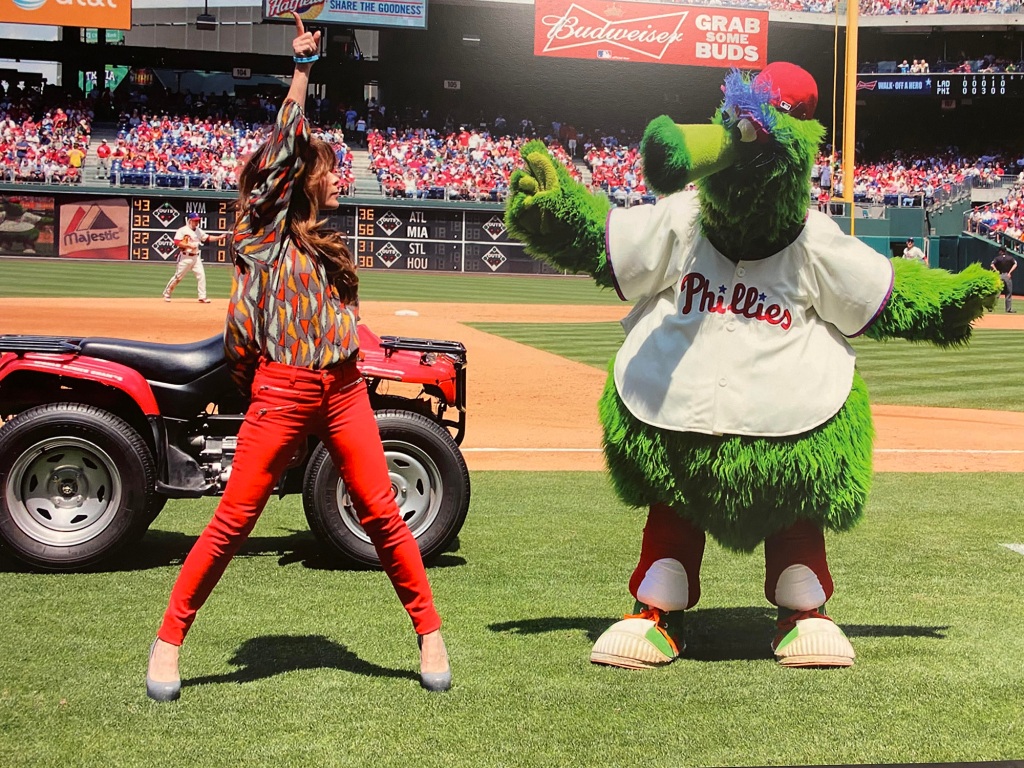
“It didn’t say that it was for the Phillies – it just said ‘Mascot wanted’,” Burgoyne told The Post. “I applied, thinking I could make a few extra bucks maybe being that guy with a sign on the side of a road.”
Thirty-four seasons later and it’s still his ideal job.
“The costume is magical. If there are days when I don’t feel right or I have back issues, I put the costume on, the pain goes away and my mood improves,” Burgoyne said. “It’s kind of like putting on a pair of slippers.”
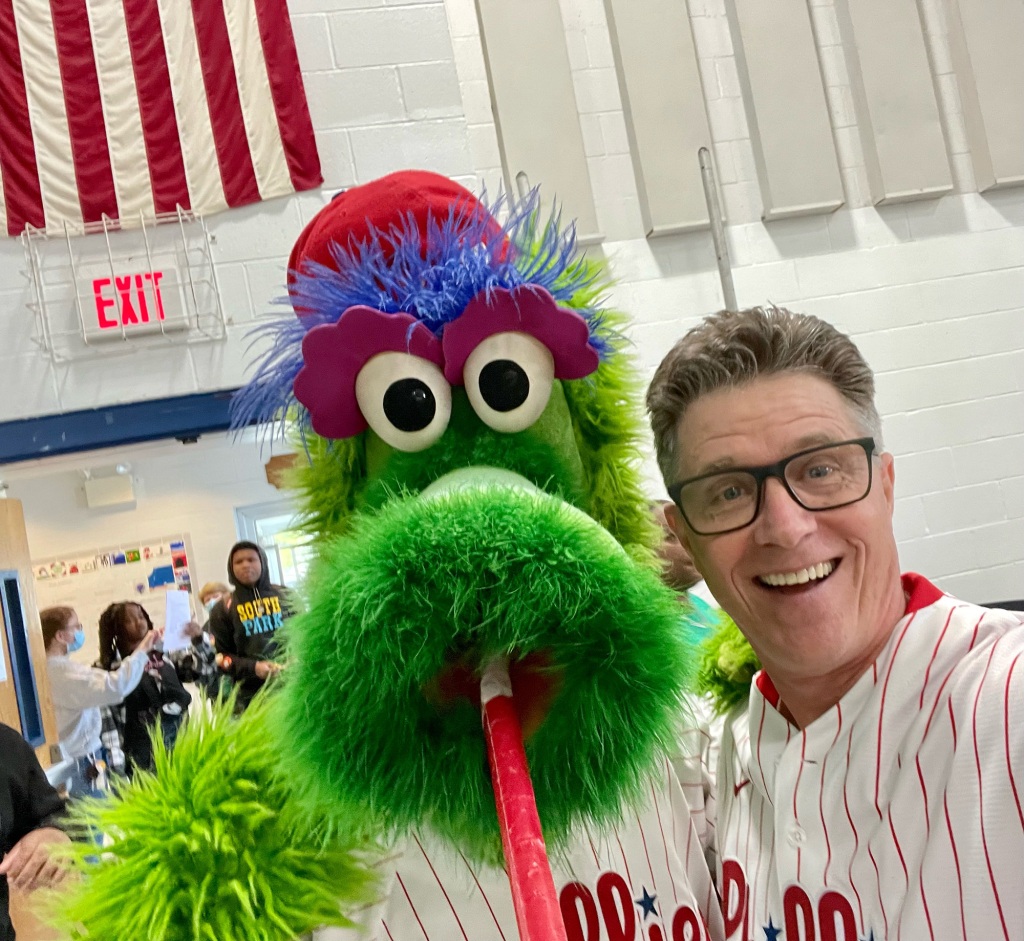
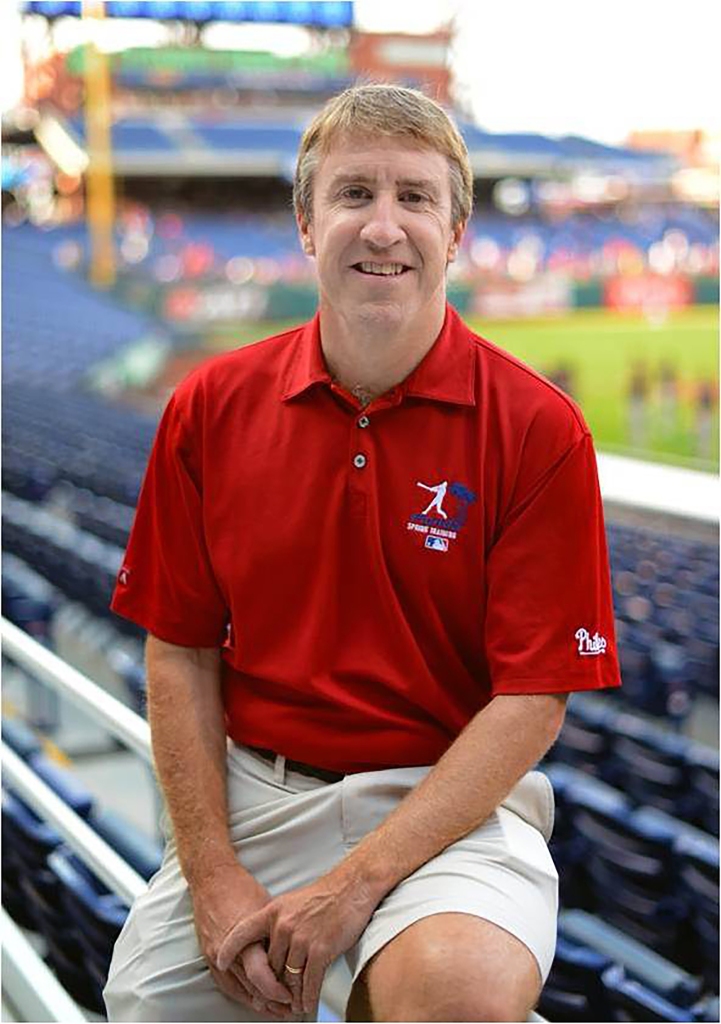
It’s also a career that has taken him all over the world, from Japan to Europe, South America to Australia. The Phillie Phanatic has dined with Supreme Court justices, guested on Jimmy Kimmel’s show, and rocked out with the likes of Elton John, Billy Joel and Paula Abdul.
“People wonder why I haven’t retired?” Burgoyne said. “But I’m having too much fun!”
The Yankees, meanwhile, learned their lesson with Dandy — the team still doesn’t have a mascot.
“Last I heard, Dandy had ended up in an industrial shredder,” Ford said. “He won’t be missed.”
Read the full article Here


